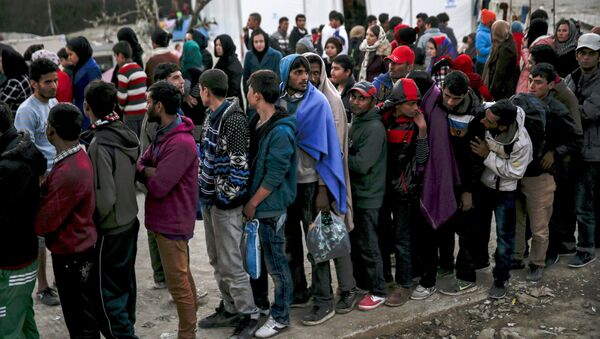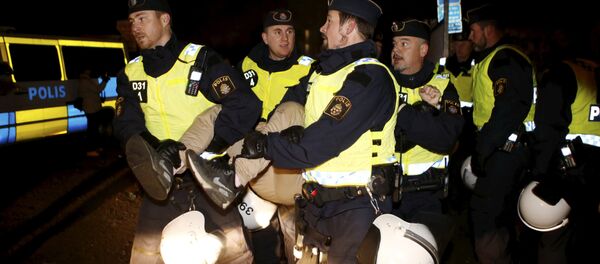Greece's Alternate Minister of Foreign Affairs Georgios Katrougalos has described refugees as present-day scapegoats of the ongoing crisis in Europe, where he said "inequalities" are on the rise.
Addressing the Reasserting Europe's Values seminar in Athens, Katrougalos lambasted austerity policies pursued by an array of European countries, such as Greece and the UK.
READ MORE: EU Deal With Turkey Helps Stall Influx of Migrants to Greece
In addition to growing inequality within the EU countries, "the gap between central Europe's strong economies and the periphery has widened", according to him.
"This represents a historic irony: Europe is repeating the same mistakes of the interwar period. In order to tackle the crisis of 1929, we tried with austerity-related policies, to respond to the inflation problem. At that time, demagogues targeted Jews as the scapegoats, instead of dealing with the real causes of the crisis, which then led to the darkest period in the history of the continent," Katrougalos noted.
Touching upon the current EU crisis, he referred to Europe's efforts to resolve the downturn with austerity measures, in contrast to the US and Japan, which he recalled focused on increasing salaries and expanding social protection programs, including their respective health care programmes.
READ MORE: Refugee Crisis: Inflow of Migrants 'Boosts Sentiments of Xenophobia' in Greece
Katrougalos said that the austerity policies had finally led to deteriorating living conditions, something that he said "modern demagogues" are trying to resolve by taking steps similar to those of the interwar period.
"Only this time, the scapegoat is not the Jews but the refugees and immigrants," he claimed.
Europe has been facing a large influx of refugees, many of them from African and Middle Eastern countries, with EU member states struggling to accommodate hundreds of thousands of new arrivals.
Italy and Greece have been especially hard hit by the refugee crisis, as they often serve as the arrival points for migrants and refugees. More than 16,000 migrants have been moved from Greece and Italy to other EU countries over the past few years.
READ MORE: 'Tragic': Greek Migrant Camp Workers Plan Strike, Protest Overcrowding Crisis
In mid-July, the Greek government announced that it is planning an overhaul of its management of the refugee crisis, both on an administrative and a budgetary level. The country's Migration Minister Dimitris Vitsas, for his part, said that three new reception facilities would be set up on the Greek mainland to allow for the relocation of additional migrants from the islands.
In exchange for emergency loans, the Greek government was forced to impose stringent spending cuts, increase taxes and introduce structural reforms. Greek Prime Minister Alexis Tsipras pledged to put an end to austerity measures when he came to power in 2015, but he himself has since signed up to a new bailout in order to keep the government afloat.



